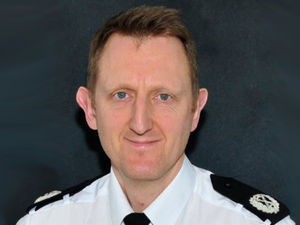'Appalling': Nearly 200 attacks on emergency workers in just three years
There have been more than 150 assaults on non-police emergency workers in West Mercia since 2020, new figures show.

In 2020 police forces began to record a new category of crime – assaults without injury on emergency workers.
Latest Home Office crime figures show 152 assaults against emergency workers have been recorded by West Mercia Police between March 2020 and the end of 2022.
Of these assaults, 49 took place in 2022, and 41 the year before, with the remainder taking place from early 2020 onwards.
In Dyfed Powys there were 34 – 10 in 2022, 17 the year before, and the rest from early 2020.
The offence applies to attacks on 'blue light' workers, such as paramedics and firefighters, along with many others, including prison officers, NHS workers, and St John’s Ambulance volunteers – but does not include police officers, who are covered by a different crime code.
The 2018 Assaults on Emergency Workers Bill came into law, imposing a maximum prison sentence of one year for common assault on an emergency worker – a sentence that was doubled in 2022.
Over the past few years 33 per cent of the crimes in West Mercia resulted in a charge, along with nine in Dyfed Powys.
Across England and Wales, 3,347 assaults on emergency workers were recorded in 2022, a slight rise on 3,342 the year before.
And since the crime was introduced, 34 per cent of recorded incidents have resulted in the offender being charged or summonsed.
Matt Wrack, general secretary of the Fire Brigades Union, said: "People become firefighters to serve their communities and help to keep people safe. It’s appalling that firefighters should face violent attacks while doing their job.
“This is not a new problem, and in the past work has been done to address it.
"Unfortunately, sweeping cuts to the Fire and Rescue Service since 2010 have meant the end of many youth and community engagement programmes which aimed to educate and include local communities in the work that firefighters do."
Ambulance workers are also frequent victims of assault – the 2022 NHS Staff Survey found 45 per cent of paramedics had experienced violence from patients or the general public.
At West Midlands Ambulance Service, body-worn cameras have been rolled out to medics, and a trial of crews wearing stab vests has been launched in the region to help keep staff safe. It also launched a campaign to highlight the attacks that have happened in staff.
Ambulance chief executive Anthony Marsh said: “My staff deserve to be treated with respect and shouldn’t face a fear of attack whilst helping others. I have nothing but admiration for the brave staff taking part in the campaign in order to raise awareness of the dangers they and other emergency service workers face.”
One man was put behind bars for 10 months for attacking an ambulance worker in Telford in September 2020.
Thomas Essex punched an ambulance worker and broke the wing mirror of the vehicle during the incident near his home. He admitted an offence of assault occasioning actual bodily harm and criminal damage relating to the incident in Gloucester Avenue, Dawley.
John Kelly, head of security and safety for West Midlands Ambulance Service, said at the time of his conviction: “It is never appropriate for staff to be abused verbally or physically.
“Our crews have the right to work without fear of violence or intimidation whilst trying to help patients.
“It is clear that the public are outraged every time something like this happens and we hope that each time someone is convicted of assaulting an emergency service worker and receives a custodial sentence like in this case, that it acts as a deterrent to others who might think about attacking our staff.”





